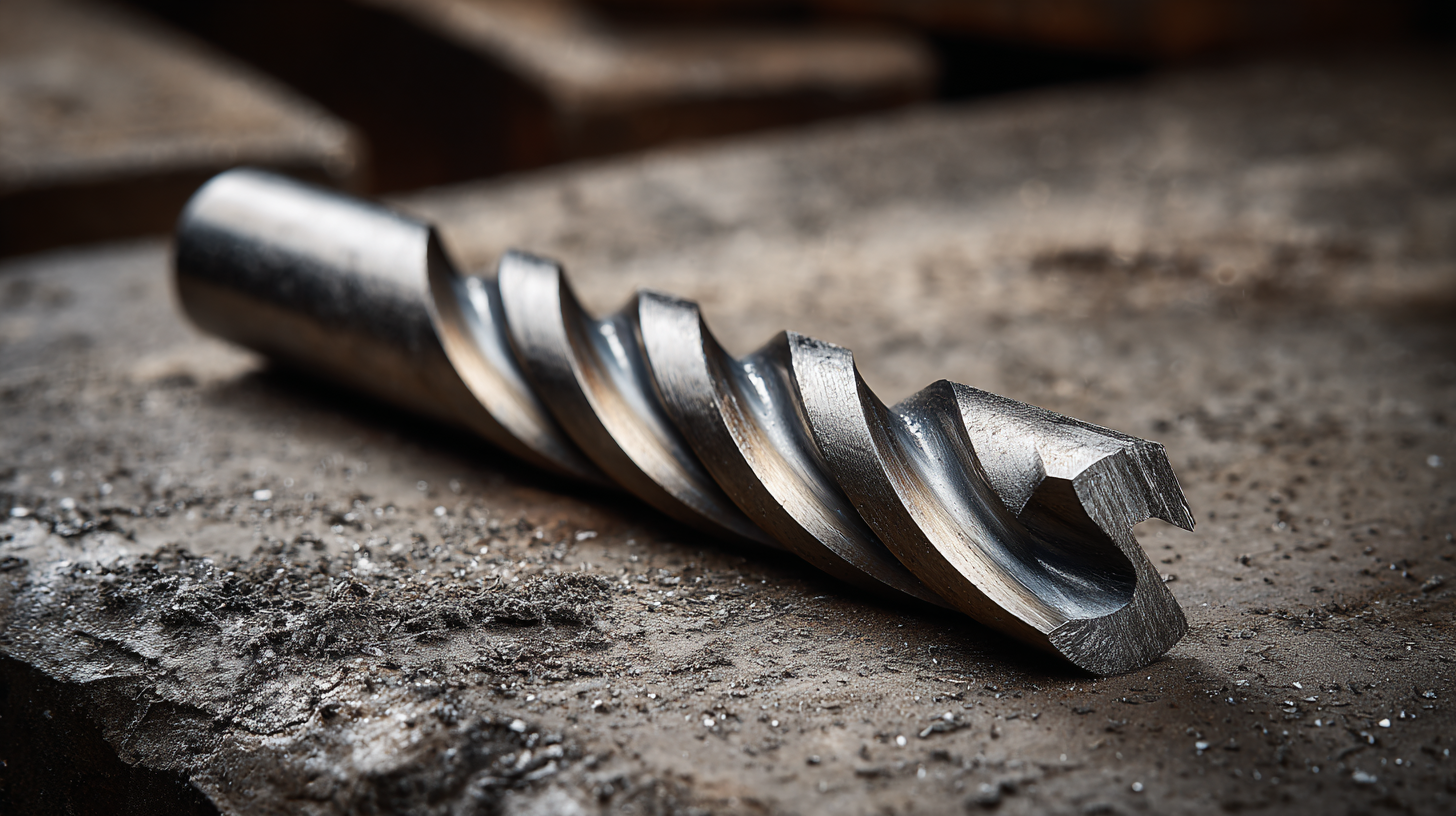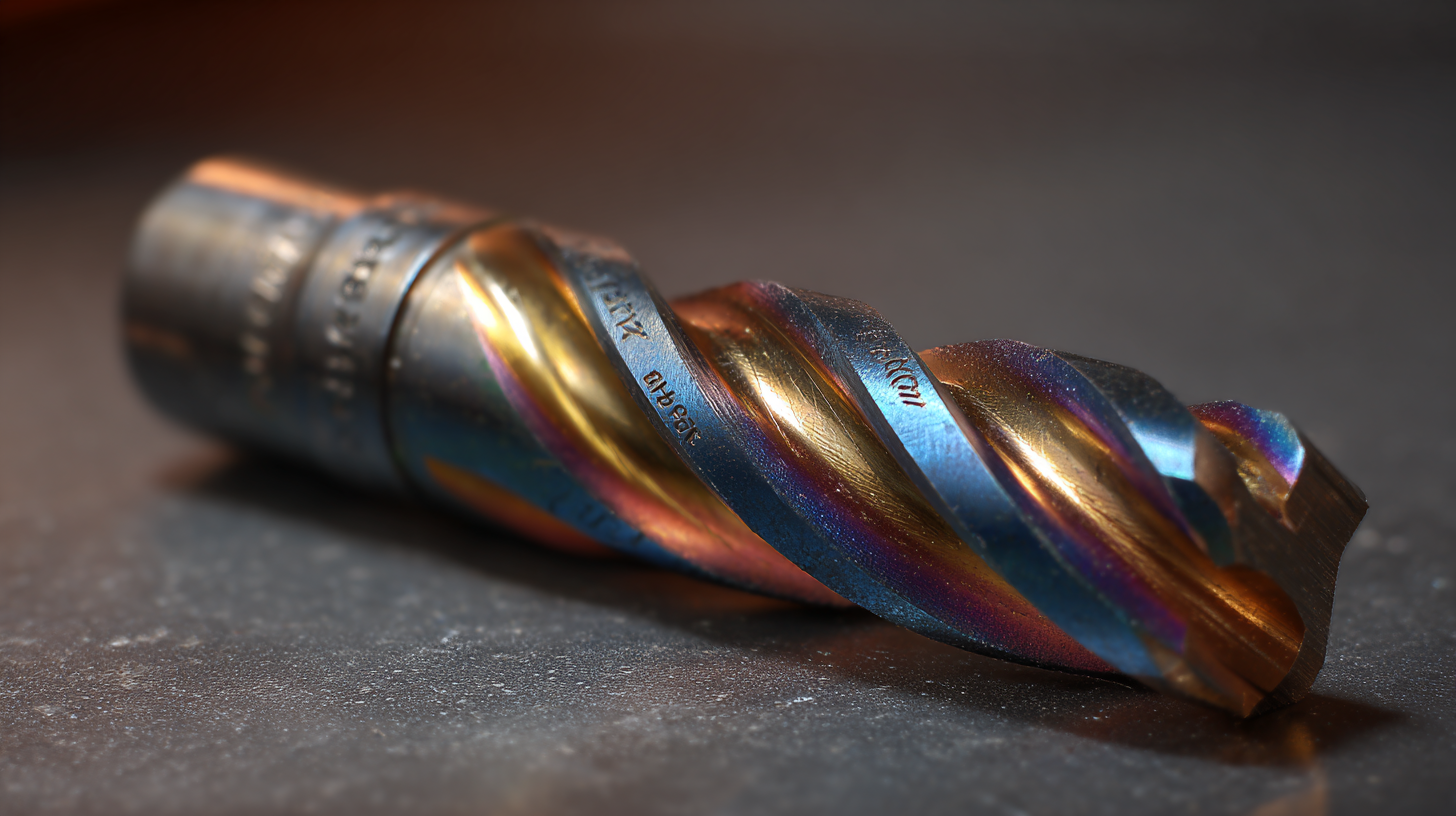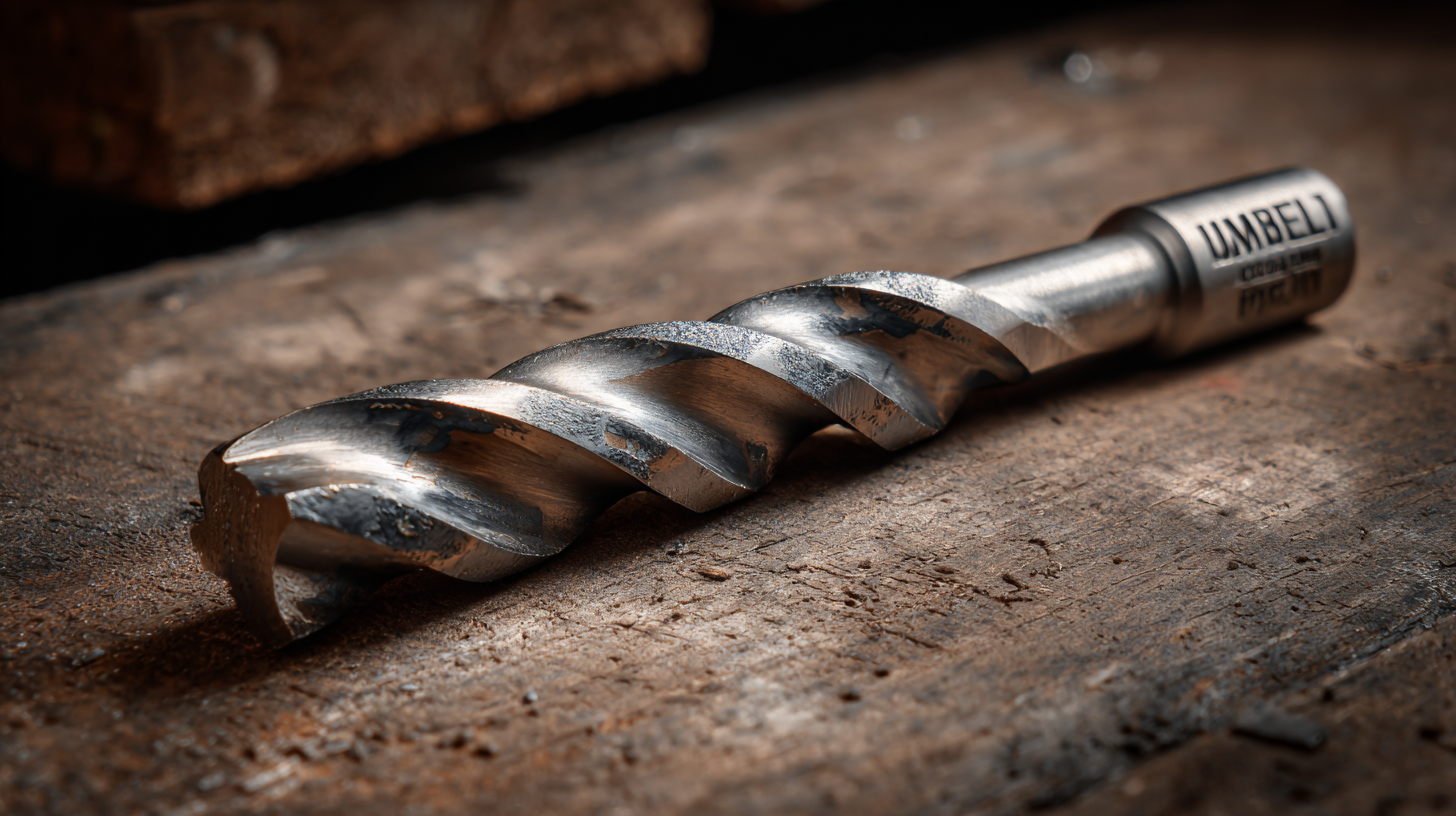In the pursuit of precision and efficiency in drilling operations, the significance of the Reamer Drill Bit cannot be understated. According to a recent market analysis by Research and Markets, the global drill bits market is projected to reach USD 14.8 billion by 2027, with a notable rise in demand for advanced and specialized tools, such as reamer drill bits, reflecting a growing trend towards high-quality manufacturing. As industries across the globe prioritize accuracy and durability in their tooling choices, understanding the top quality features of the best reamer drill bits becomes imperative for buyers aiming to enhance their operational capabilities. This tutorial delves into the essential attributes that define the leading reamer drill bits, equipping global buyers with the knowledge they need to make informed purchasing decisions and ultimately achieve superior drilling performance.

Reamer drill bits are essential tools in various industries, known for their ability to provide precision and smooth finishes in drilled holes. Understanding the key features that define high-quality reamer drill bits is crucial for global buyers seeking the best tools for their projects. One of the primary characteristics is the material used; high-speed steel (HSS) and carbide-tipped designs offer notable durability and heat resistance, making them ideal for demanding applications.
When selecting a reamer drill bit, it's important to consider the flute design. Flutes that are wider or more numerous can enhance material removal and improve chip clearance, leading to better performance and lower risk of bit binding. Additionally, the cutting edge geometry should not be overlooked; sharper edges lead to cleaner cuts and reduced friction, extending the tool's lifespan.
Tips for Buyers: Always choose a reamer drill bit that matches your project requirements in terms of size and application. Ensure compatibility with your existing drilling equipment to achieve optimal results. Moreover, investing in bits with a coating such as titanium or black oxide can significantly increase resistance to wear and tear, enhancing overall effectiveness.
The selection of the right material for reamer drill bits is crucial in ensuring both performance efficiency and durability. According to a report by Grand View Research, the global market for drill bits, including reamer bits, is projected to reach USD 7.3 billion by 2025, indicating a robust demand for high-quality products. When it comes to reamer bits, common materials include high-speed steel (HSS), carbide, and cobalt alloys, each offering unique benefits tailored to different applications. HSS, for example, is an economical choice for general-purpose drilling, while carbide bits provide superior hardness and wear resistance, making them ideal for tough materials.
The importance of material selection is further illustrated in a study by the American National Standards Institute (ANSI), which found that reamer bits made from premium materials can enhance cutting precision by up to 25%. This can significantly impact the quality of finished products, especially in sectors like aerospace and automotive manufacturing, where precision is paramount. Additionally, using the appropriate material can reduce tool wear, leading to lower operational costs and increased productivity. As global buyers seek the best reamer drill bits, understanding material properties and their implications on performance will be vital for informed purchasing decisions.
| Feature | Material | Diameter Range (mm) | Applications | Typical Use Cases |
|---|---|---|---|---|
| High Precision | High-Speed Steel | 3 - 20 | Metalworking | Machining holes to exact sizes |
| Durability | Carbide | 5 - 25 | Woodworking | Creating clean and smooth hole finishes |
| Heat Resistance | Cobalt Alloy | 4 - 20 | Aerospace | Precision drilling in high-temperature environments |
| Corrosion Resistance | Stainless Steel | 2 - 15 | Marine | Drilling components subject to moisture |
| Versatility | Titanium Nitride Coated Steel | 3 - 30 | General Manufacturing | Suitable for a variety of materials |
When it comes to selecting the best reamer drill bits, buyers are often overwhelmed by the sheer number of brands and offerings available in the market. According to a recent industry report by Grand View Research, the global drill bits market is expected to reach $23.5 billion by 2026, with a significant surge due to the rising demand in the oil and gas and construction sectors. This growth underscores the importance of understanding the unique features that top brands offer, which can greatly influence purchasing decisions.
Leading brands like Bosch, DeWalt, and Makita each provide distinctive qualities that cater to various drilling needs. For instance, Bosch's reamer drill bits are renowned for their high-speed steel construction, providing excellent durability and cutting precision, suitable for both professional and DIY applications. Meanwhile, DeWalt focuses on incorporating advanced coatings that enhance wear resistance and reduce friction, thus extending the life of their products. According to a report by MarketsandMarkets, coated drill bits can last up to 40% longer than uncoated counterparts, making them a valuable investment for contractors. As buyers navigate the competitive landscape, understanding these unique offerings can lead to more informed decisions and optimal drilling results.

When selecting the right reamer drill bit for different applications, it is essential to consider factors such as material, size, and the specific requirements of the task at hand. Reamer drill bits come in various designs and sizes, suitable for specific types of materials including wood, metal, and plastic. For instance, HSS (High-Speed Steel) reamers are ideal for metals requiring precision, while carbide reamers offer greater durability and longevity in demanding conditions.

Another crucial aspect is the type of hole being drilled—whether it’s a blind hole or a through hole. Each application may require a different point angle or type of flute design to ensure optimal performance and efficiency. Additionally, choosing the right shank type can also impact compatibility with your drilling equipment, contributing to smoother operations and better results. Understanding these elements can empower buyers to make informed decisions, ensuring they choose a reamer drill bit that not only meets their immediate needs but also supports a variety of projects over time.
Maintaining and extending the life of your reamer drill bit is crucial for efficiency and cost-effectiveness, especially in demanding drilling environments. One of the key aspects of maintenance is to ensure proper cleaning after each use. Removing debris and wear particles can significantly enhance the performance of the tool. It's also essential to regularly inspect the drill bit for any signs of wear or damage. Timely replacements can prevent issues that might arise from using a compromised tool.
Additionally, adopting advanced drilling technologies can streamline operations and minimize wear on the drill bits. For instance, techniques like reaming-while-drilling allow for continuous drilling without the need for frequent trips, thereby reducing strain on the equipment. Innovations, such as expandable under reamers, not only cut costs but also mitigate risks associated with traditional drilling methods, especially in challenging geological conditions. As drilling technologies evolve, integrating these modern solutions can help in achieving longer tool life and improved operational efficiency.